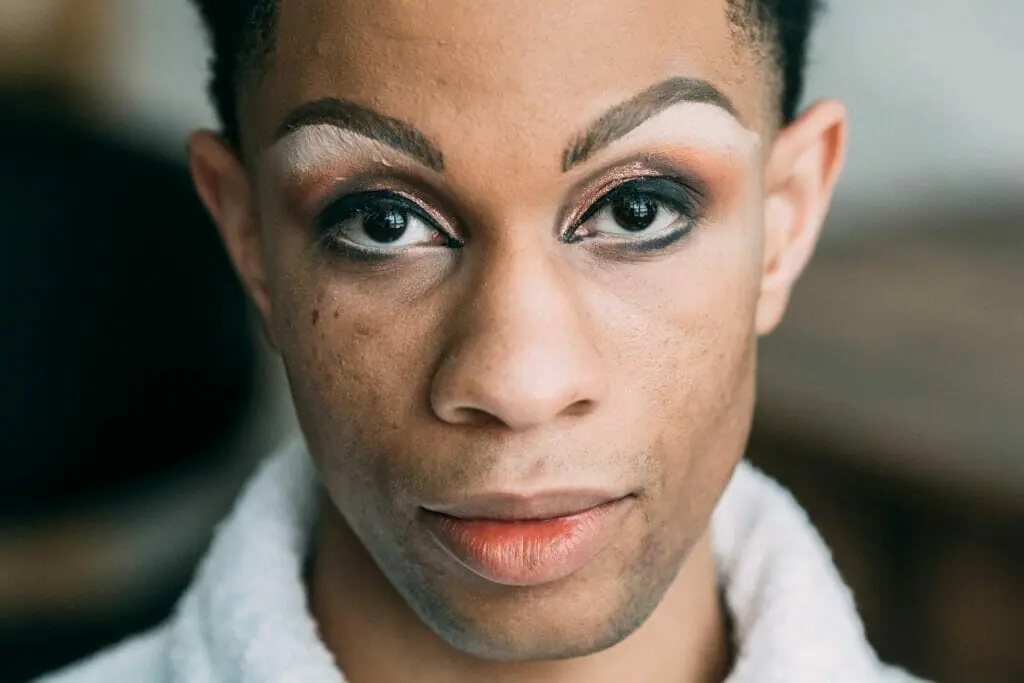Anyone can feel attached to or identify with a diversity of gender identities and/or sexual orientations. And as evermore definitions have been popularised over the years to embody the emotions and experiences of queer people, it can be hard to keep up.
If you are not totally absorbed in LGBTQ+ culture or the rainbow community, you may not appreciate these lesser-known sexual orientations and gender identities – most of which have a lack of representation in mainstream media.
One such term is demigender, so we are going to define and cover what does demigender mean, speak about the demigender pride flag, and then provide some tips to help you become a better ally to demigender people.
In this article we will cover...
What Does Demigender Mean?
Demigender is a gender identity that refers to a partial, but not a full connection to a specific gender identity or the idea of gender. Many demigender individuals also identify as nonbinary.
Demigender isn’t always a partial connection to gender such as female or male and a partial connection to agender. Demigender can instead be a partial connection to a third gender that isn’t agender or the absence of gender. Demigender people often feel that the partial connection they have is a gender but can’t be subscribed.
For example, if one is a demigirl, they might have the experience of femininity and not be binary. On the other hand, an identity such as demiboy that’s under the demigender umbrella is used to describe someone who embraces masculinity regardless of whether they were born with X or Y chromosomes.
It’s possible for someone to identify as demigender without being a demigirl or demiboy but they can’t be a demiboy or demigirl and not identify as demigender. Some of the identities under the demigender umbrella include:
- Demiboy: identifying partially as masculine or a man
- Demigirl: identifying partially as feminine or a woman
- Demi nonbinary: identifying partially as non-binary
- Demifluid: having a partially fluid identity and another that is static
- Demiagender: identifying partially as agender
- Demineutrois: identifying partially as neutrois
- Demigender: identifying as part nonbinary and female and male.

Unlike demisexual, demigender isn’t a sexual identity. The term describes someone’s gender rather than who have or don’t have an attraction to.
There are no right or incorrect ways to display your demigenderness because gender is a societal construct. It’s quite unique. Some people feel they have a shaky connection to one gender, while others experience it as a greater connection with one gender than others.
Because a demigender person may incline to be more masculine or feminine in their attitudes or attire, they may lean toward a particular style or remain with more gender-neutral makeup and fashion options.
It’s also worth noting that there is no universal pronoun for someone that is demigender. Therefore, always ask for (and offer) pronouns rather than assuming someone’s pronouns.

Demigender Pride Flag Meaning
There are many different pride flags symbolizing most queer identities, so it should come as no surprise there is a flag for demigender people to proudly fly.
The demigender flag has dark gray, light gray, light yellow, white, then light yellow, light gray, and dark gray stripes. Gray stands for partially identifying with the gray areas, yellow is for non-binary gender identities, and white stands for agender.
When Is Demigender Pride Day
Education, visibility, commemoration, and appreciation are all critical in promoting global acceptance and acknowledgment of queer identities and queer folx in general. And from experience, we know it is easier for demigendered individuals to talk to friends and loved ones – and to feel the love – when a worldwide day for demigender’s is observed. Not to mention it also helps foster awareness and increased sensitivities from society at large.
So, mark your calendar and do something special (even if it’s just a social media post!) for Demigender Pride Day next June 15th.
Other Demigender Information to Help You Be a Better Ally
No demigender experience is identical to another. You can’t tell whether someone is demigender by looking at them, observing their personality, or their physical aesthetic. None of these characteristics can provide a clue as to how a person identifies, and this is as true for demigendered individuals as it is for any gender or sexual orientation.
The first thing you should do as an ally to demigender people is to believe them when they tell you about their identity. Don’t try to argue them out of it or make the mistake of thinking you could know more about how they feel than they do. It could also help if you worked on your mindset. Working on your attitude means you challenge your concept of gender, sexuality, and sex.
After all, if you have any issues with understanding demigendered people, the root cause is bound in your understanding of gender and sexuality – not theirs. Educating yourself (as you are by reading about what does demigender mean?) is an excellent first step to increase your awareness and not make your lack of knowledge in this area a burden on them.
There aren’t any explicit rules or guidelines, but here are some thoughts on how you can be a better ally and support a loved one as you discover what it means to be a demigender.

Understand the meaning of demigender
Remember, a demigender is a gender identity that refers to a partial, but not a full connection to a specific gender identity or the idea of gender. A demiboy is a person who identifies as both male and partly female and a demigirl is a person who identifies as both female and partly male.
The majority of the time, there is also the feeling of a nonbinary gender, or a lack of one, as someone who is half male and half female will mostly identify as bigender. However, there are variations. Demigirl is the same thing as a demiboy, except with a female instead of a male.
This is true regardless of any assigned sex at birth. Identifying as a demiboy or a demigirl is not based on physical sex.
Know what pronouns to use
What pronouns are used by demigenders? They differ from individual to individual. If someone refers to themselves as a demigirl, it’s reasonably safe to infer the use of the pronoun she or a gender-neutral pronoun, or both.
With demiboys, it’s the other way around. However, this isn’t always the case. Asking what pronouns they prefer is the best course of action, or looking them up if you’re interacting with someone online and they have it on their social page.

Affirm someone’s gender identity
The most important thing you can do, with anyone, is to respect and support them. You may achieve this by confirming everyone’s gender identity, regardless of how they look or portray themselves. Jumping to conclusions about someone else’s gender identity, sexual orientation, or pronouns is never a good idea.
Because everyone is different when it comes to this, don’t presume you know what they want. If you accidentally misgender someone, please apologize, repeat the phrase using the right pronoun, make a mental point to use it again, and move on.
Making a huge issue about it just puts the person in the position of having to pretend as if nothing happened.
They aren’t bored or indecisive
Keep in mind that gender can only change unconsciously, so if their identity shifts, it’s not because they’re undecided or bored; it’s due to a fluid shift in gender that no one can control. The labels you employ, on the other hand, change purposefully.
People may discover that what they thought was the ideal label for them was incorrect, or they may discover a better label. Don’t make fun of them for it. They’re only attempting to make sense of things. It doesn’t invalidate their identity in any way.

Respecting demigender doesn’t mean you offer special treatment
Performing the aforementioned tasks is not considered preferential treatment. It is a matter of basic decency. You are not obligated to treat somebody differently based on their gender identity. Respecting someone and treating them as if they are entitled to basic rights and validation or affirmation, is not special treatment.
I wouldn’t recommend it being extra pleasant or prioritizing certain folks above others. Simply treat us like any other human being. Demigender people are not that different from any other transgender individual, or any other person for that matter.
Neither demigirl nor demiboy will be our exclusive identity. Don’t be concerned about preferential treatment; instead, be concerned about respect and basic rights. Recognize the differences.
Understand that demigender is a valid identity
Even though the term demigender might be new to you, it doesn’t mean that the identity is new. Demigender people aren’t pretending to prefer one identity over the other so please be careful about what you say to them and others about their identity.





